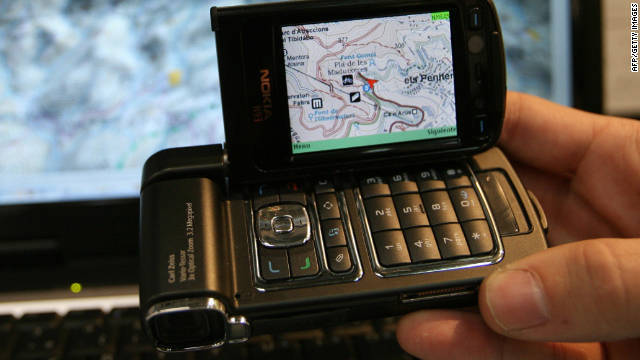WASHINGTON — For a month in 2005, police tracked Antoine Jones’ every move – or at least those he made in his Jeep Grand Cherokee.
Using a GPS device authorities had secretly attached to the vehicle, investigators in the nation’s capital were able to tie him to a suspected drug stash house. Jones was eventually arrested and convicted in federal court of conspiracy to distribute cocaine.
The case is now before the Supreme Court, raising far-reaching questions about privacy in an age when technology gives police unprecedented power to peer into Americans’ day-to-day activities with cameras, computers and tracking devices. In arguments today, the justices will consider whether police need a search warrant before using a GPS device to monitor a suspect for weeks at a time.
“It’s very important because the police have begun to use technology in all sorts of investigations for all sorts of purposes,” said Vanderbilt University law professor Chris Slobogin, who has written a book on the legal implications of high-tech government surveillance methods.
The case is before the court as lawmakers and privacy advocates are raising concerns that companies are collecting personal data from electronic devices, including mobile phones and tablet computers, for marketing purposes.
Jones, now 51, was a Maryland resident who owned a nightclub in Washington where prosecutors say he ran a narcotics trafficking organization. The GPS device, placed in the vehicle while it was in a Maryland parking lot, was one facet of an investigation by local and federal authorities that also included visual surveillance and a wiretap on Jones’ mobile phone. Jones is serving a life sentence.
The Obama administration is urging the high court not to require a warrant for GPS use, calling it a “minimally intrusive” step that yields important results in drug and terrorism cases. To obtain a warrant, officers must show a judge that they have “probable cause” to believe the search will lead to evidence of a crime.
The government also argues that GPS tracking provides no more information than what police could have obtained through more traditional means.
In a 1967 case, the Supreme Court said the Fourth Amendment doesn’t shield information that a person “knowingly exposes to the public.”
But Jones’ attorneys say GPS devices can show a pattern of movement that officers might not detect through visual observation. In throwing out the conviction, a federal appeals court in Washington agreed with that reasoning.
The Supreme Court in 1983 upheld the use of a beeper placed on a car to track a suspect during a single trip. The newest question is whether police need a warrant to use GPS devices continuously over longer periods.
Lower courts are divided on the issue, with the federal appeals court in Jones’ case overturning his conviction.
Privacy advocates say a ruling in favor of the police would open a dangerous new chapter in government surveillance of ordinary citizens. Unlike with the beeper, which required an officer to follow the suspect’s car to pick up the signals being emitted, GPS devices allow monitoring with very little police effort, says Marc Rotenberg, executive director of the Electronic Privacy Information Center in Washington.
Copy the Story Link
Send questions/comments to the editors.



Success. Please wait for the page to reload. If the page does not reload within 5 seconds, please refresh the page.
Enter your email and password to access comments.
Hi, to comment on stories you must . This profile is in addition to your subscription and website login.
Already have a commenting profile? .
Invalid username/password.
Please check your email to confirm and complete your registration.
Only subscribers are eligible to post comments. Please subscribe or login first for digital access. Here’s why.
Use the form below to reset your password. When you've submitted your account email, we will send an email with a reset code.